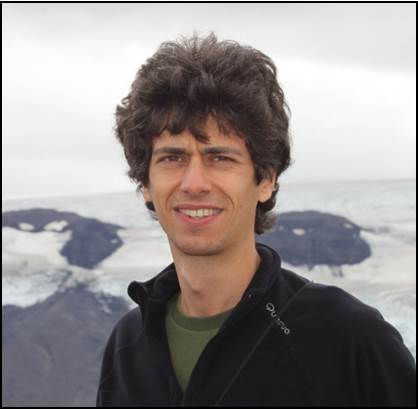Leone Pierangioli - XXIX cycle
 |
Graduated with honours in Architecture at the University of Florence in 2008 with a thesis on the assessment of energy saving an thermal inertia control in a competition project for housing. Since then he has been Teaching Assistant in the courses on Environmental Engineering Physics and Technical Equipment and collaborates with the Environmental Physics for Building Quality Lab of the University of Florence in the fields concerning the assessment of energy performance of buildings with the use of instrumental measures and calculation codes, as well as the energy re-qualification of existing buildings. He was awarded a research grant in Environmental Engineering Physics from 2010 to 2011. During the years 2009 to 2012 he attended the Master's Degree course in “Climate Engineering” at the Donau-Universität Krems.
Scientific interests: Simulation of energy performance of buildings; Energy efficiency of the building-equipment system; Energy re-qualification of the existing built heritage; Energy certification of buildings; Environmental monitoring and thermal and hygrometric comfort
Title of the thesis “Effects of climate change on the thermal energy performance of residential buildings in Mediterranean climates” (“Effetti dei cambiamenti climatici sulle prestazioni termo-energetiche degli edifici_ residenziali in clima Mediterraneo”)
Abstract The field of research is the study of the interactions between climate change and the thermal energy performance of residential buildings. At present residential buildings are responsible for close to 40% of total energy consumption and consequently of constant emissions of climate-changing gasses. To this is added the fact that in the Mediterranean context there is a probable decrease in the capacity of buildings to guarantee optimal levels of thermal and hygrometric comfort, with a consequent and foreseeable increase in the annual energy needs, all of which is caused by the larger need for artificial cooling in summer which is not contrasted by the possible reduction of energy consumption in winter. From those premises and from the most recent legislative directives, it has become clear that it is necessary to design buildings with a very low energy consumption (nZEB), and in particular to re-qualify existing residential buildings built in the period between the end of the war and the Nineties, which is also that part of the built heritage that has the highest energy consumption, in order to adapt them for future climate contexts and for reducing the impact on the climate as well as reducing their dependency on fossil fuels. On the basis of all of the above, the thesis aims to analyse, from the point of view of various scenarios that are representative of expected climate changes, the effects on consumption and on environmental welfare of a significant series of exemplary case studies that are illustrative of existing public residential buildings that were built in Tuscany after the Second World War. Based upon the results, the research will identify design and planning tools and strategies that are applicable both to re-qualification and to new building, and in particular will evaluate the performance of doors and windows, screens and blinds, opaque envelope (Sulla base dei risultati ci si propone di individuare strumenti e strategie progettuali, applicabili alla riqualificazione e alla nuova edificazione, ed in particolare valutare le prestazioni di serramenti, schermature, involucro opaco (light and massive systems) and energy generation systems, capable of satisfying the objectives concerning containment of emissions (mitigation) and of environmental welfare (adaptation) in relation to the future Mediterranean climate context. |
Last update
18.05.2021
